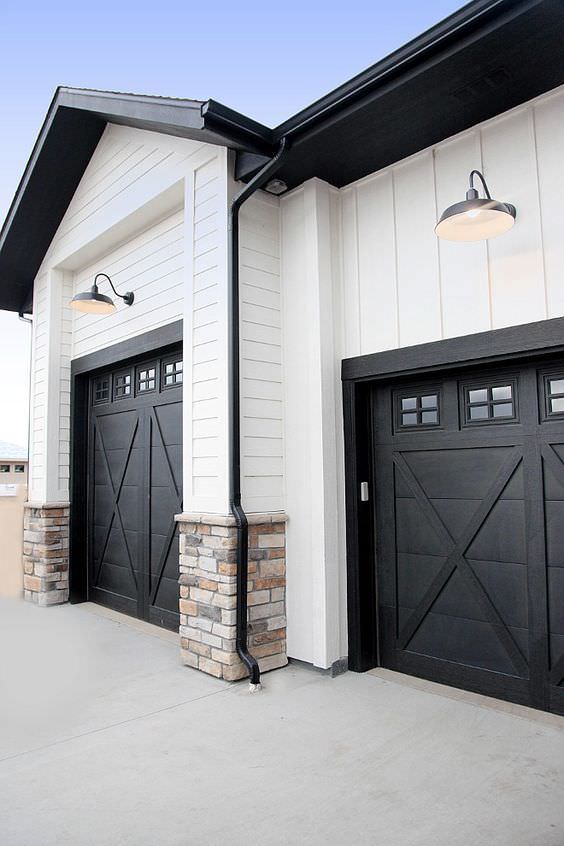Dark wood garage doors add warmth and timeless style to homes, blending seamlessly with architectural designs from modern farmhouses to sleek contemporary builds. But beyond their aesthetic appeal, these doors require careful planning around costs, materials, and long-term care. Whether renovating or building new, this guide breaks down everything from budgeting for mahogany to maintaining faux wood alternatives, with insights from homeowners who’ve navigated the process.
Breaking Down Dark Wood Garage Door Costs
Understanding pricing starts with material choice and size.
Material and Size Impact
Basic single-car wood doors range from $1,000 to $5,000 for the door alone, with installed costs climbing to $1,500–$6,500 1. For larger two-car garages, doors cost $1,500 to $8,500+, and installation can push totals over $10,000 1. Premium woods like mahogany sit at the higher end ($3,000–$8,500+) due to their density and resistance to warping 1.
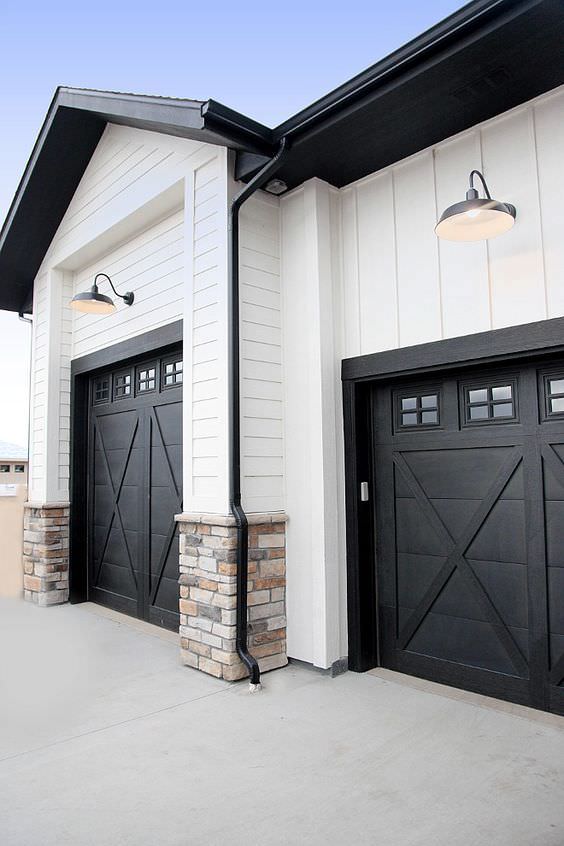
Customization Adds Up
Intricate designs quickly increase costs. A Minnesota homeowner spent an extra $1,200 adding pyramid-panel mahogany doors to match their Tudor-style home 4. Features like tempered glass windows (+$200–$800) or forged iron hinges (+$100–$500) can elevate prices by 10–30% 56.
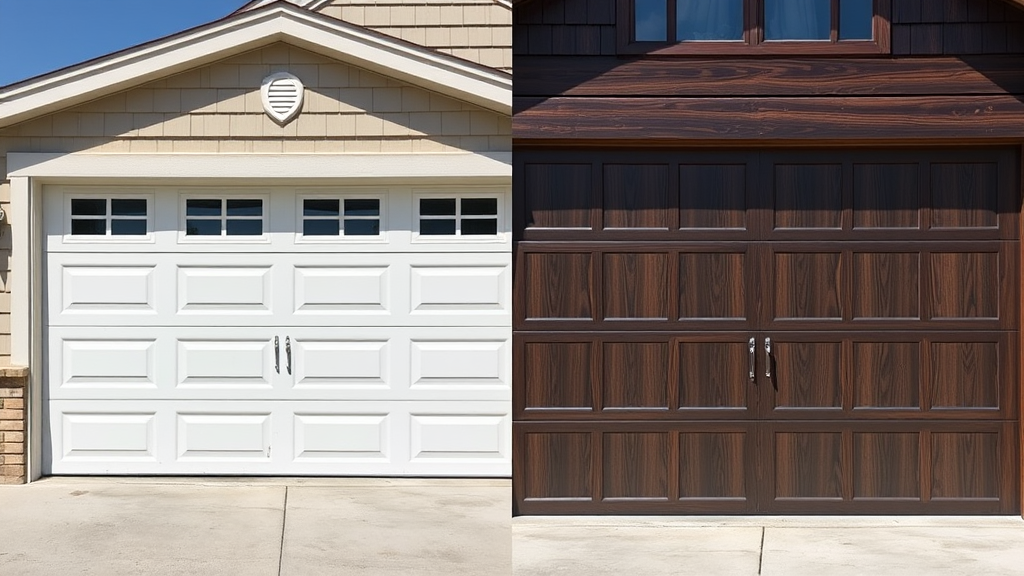
Designing Custom Dark Wood Garage Doors
Tailor your door to complement your home’s architecture without blowing your budget.
Style Choices That Matter
- Panel Profiles: Horizontal planks suit mid-century modern homes, while raised panels align with Colonial or Craftsman styles.
- Windows: Arched windows with grilles enhance traditional facades but require tempered glass to meet safety codes (+$300–$700) 5.
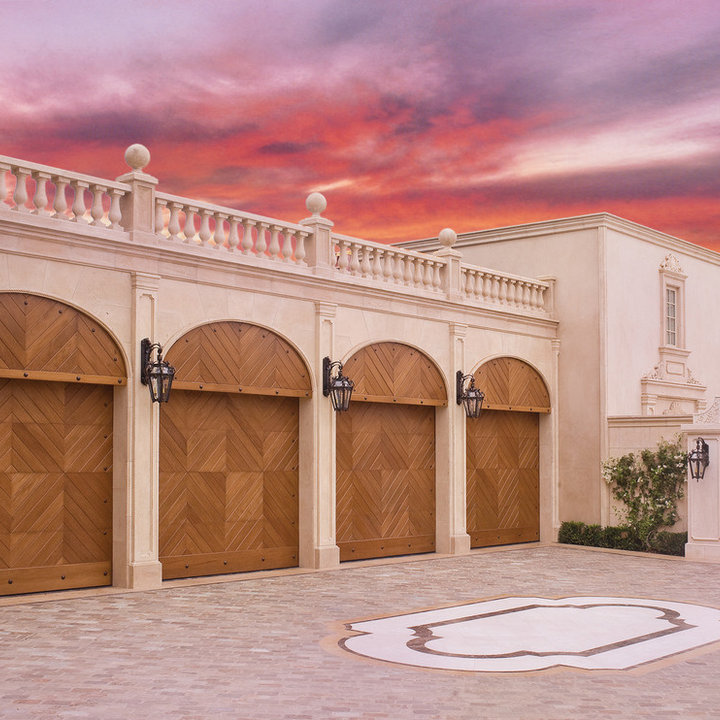
Real vs. Faux Wood
While genuine mahogany offers unmatched richness, faux wood alternatives (like Clopay’s composite overlays) mimic the look for $2,500–$6,000 with minimal upkeep 5. One Colorado homeowner chose faux wood after realizing their high-altitude climate would warp natural timber 9.
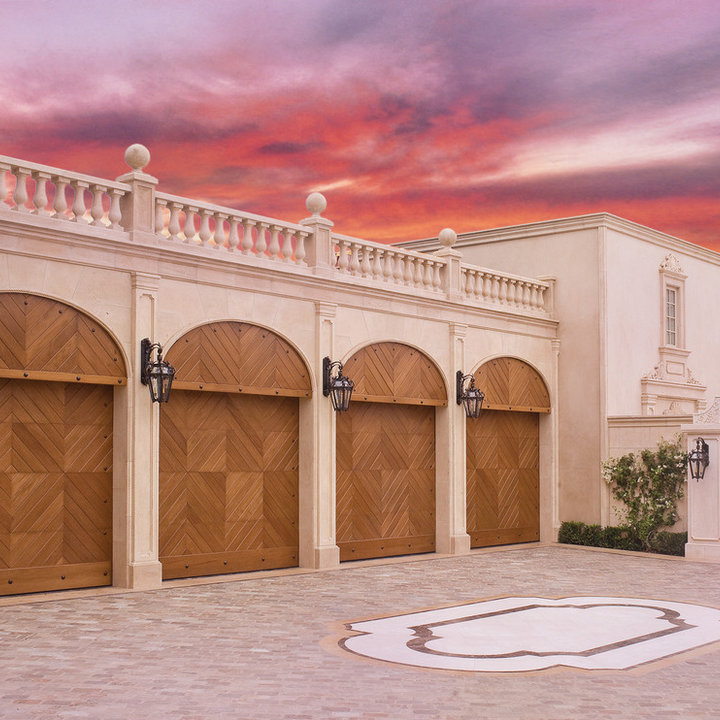
Insulated Dark Wood Garage Doors: Are They Worth It?
Insulation impacts both comfort and energy bills.
Cost vs. Efficiency
Non-insulated single-car doors average $1,000–$3,000 installed, while insulated models with polyurethane foam cores cost $1,500–$8,500+ 10. These offer R-values (thermal resistance) of 5–20, with higher values found in premium brands like Amarr’s Classica line (R-13.35) 1112.
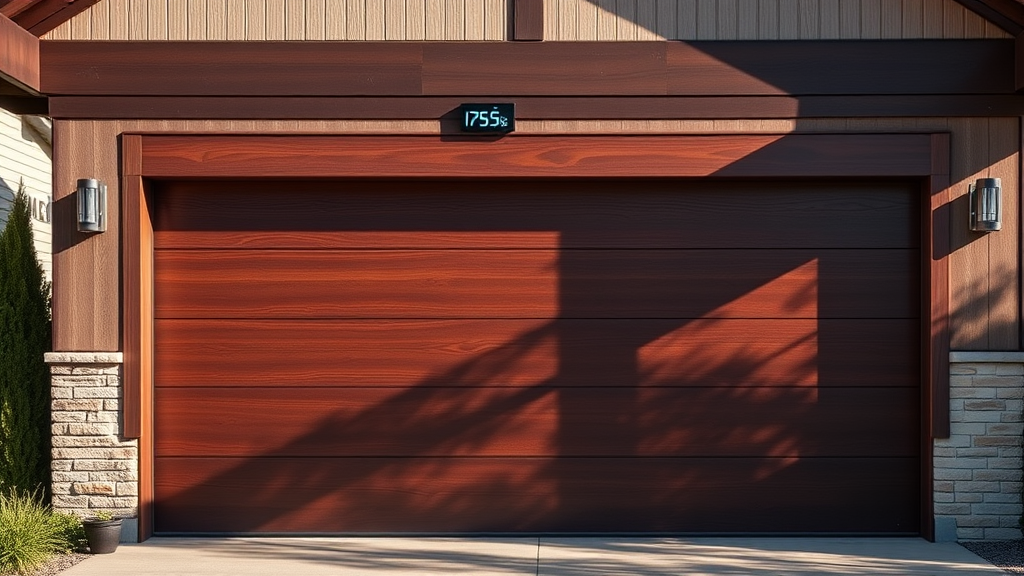
Real-World Benefits
A Wisconsin homeowner reported a 12% drop in heating costs after upgrading to an insulated cedar door, citing the garage’s stabilized temperature as a key factor 11. For attached garages, insulation is a practical long-term investment.
Top Brands for Dark Wood Garage Doors
Leading manufacturers balance aesthetics, durability, and innovation.
Clopay: Craftsmanship Meets Innovation
- Key Feature: Canyon Ridge faux wood doors use composite overlays to resist fading.
- Drawback: Some users note finish wear in extreme sun after 3–5 years 14.
Amarr: Strength Meets Tradition
- Key Feature: Classica Full View doors pair colonial-style windows with R-13.35 insulation.
- Drawback Manual operation is challenging due to weight; one customer upgraded to a heavy-duty opener (+$400) 12.
CHI: Durability for Humid Climates
- Key Feature: Accents Woodtones line mimics reclaimed wood on rust-resistant steel.
- Best For: Coastal regions where moisture warps natural wood.
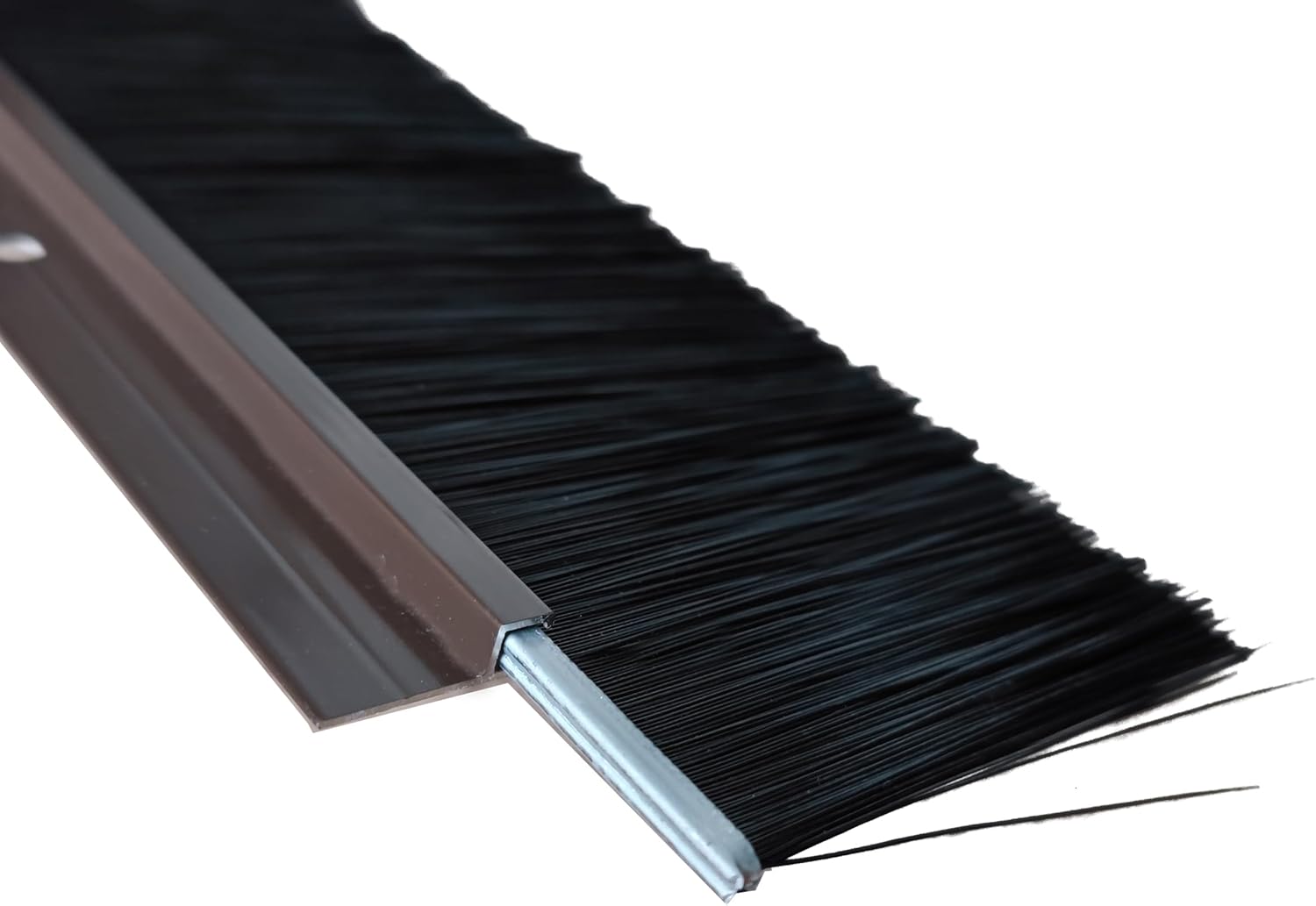
Upgrading to a Dark Wood Garage Door
Switching from steel or aluminum? Consider these factors.
Material Trade-Offs
- Real Wood requires sanding and staining every 2–3 years to prevent weathering. A Michigan homeowner spends $150 annually on maintenance 169.
- Faux Wood needs only annual cleaning with mild soap, saving 5–7 hours yearly on upkeep 9.

Installation Tips
Heavy wood doors often require track reinforcements. One contractor noted, “Misaligned tracks wear out rollers 50% faster”. Budget $300–$800 for structural adjustments if your garage wasn’t designed for wood .
Maintenance to Maximize Lifespan
Protect your investment with routine care.
- Cleaning: Use a soft brush and pH-neutral cleaner twice yearly. Avoid pressure washers since they strip stains 16.
- Refinishing: Sand and re-stain natural wood every 2–3 years; cedar may need yearly touch-ups in rainy climates 16.
- Hardware Checks: Lubricate hinges with silicone spray each season and replace worn rollers promptly.
The Verdict: Is a Dark Wood Door Right for You?
Dark wood garage doors elevate curb appeal but demand informed choices. Premium materials like mahogany justify their cost with unmatched elegance, while faux options cater to budget-conscious homeowners. Prioritize brands like Clopay or Amarr for balanced quality and value, and never skip annual maintenance. As one homeowner summarized:
Your garage door is the first thing guests see. Make it count.

